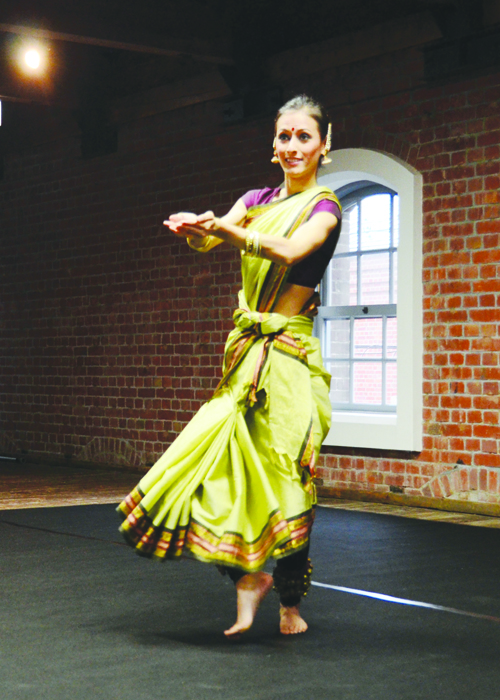.jpg) India’s squash racquets champion Saurav Ghosal (26) is among the world’s Top 20 (# 19) players in this testing indoor game which requires lightning fast reflexes, stamina and grit. Ghosal was in the garden city recently to participate — and win — the Banga-lore Invitational Squash Tournament 2013 hosted by the Karnataka Badmi-nton Association.
India’s squash racquets champion Saurav Ghosal (26) is among the world’s Top 20 (# 19) players in this testing indoor game which requires lightning fast reflexes, stamina and grit. Ghosal was in the garden city recently to participate — and win — the Banga-lore Invitational Squash Tournament 2013 hosted by the Karnataka Badmi-nton Association.
Winning tournaments in India and abroad is a habit with Ghosal. In 2004, while a student in the UK, he was crowned U-19 British Junior champion and has been the reigning national (India) champion for eight years (2004 and 2006-12). In December 2006, he bagged a bronze medal for India at the Asian Games (Doha), and four years later was awarded two more bronzes (individual and team) at the Asian Games 2010 staged in Guangzhou, China.
The elder of two siblings born to Rajendra Nath, managing director of automotive lubricants major Tide Water Oil Company, and homemaker mother Nupur, this Arjuna awardee (2007) who spent a large part of his formative years in Kolkata, is currently based in Leeds, UK, after acquiring a joint honours degree (economics and business management) from Leeds University.
Ghosal’s interest in squash was kindled at age eight when he was inspired by his father, who played regularly at the Calcutta Racket Club (estb. 1793). After completing his class X from Kolkata’s Lakshmipat Singhania School, he migrated to Chennai in 2002 to be coached by Major Maniam (former national coach of Malaysia) and India’s national coach Cyrus Poncha of the world-class ICL Squash Academy, run by the Squash Racquets Federation of India. Right after moving to Chennai, Ghosal was crowned junior national champion at age 17.
Squash racquets is a gruelling sport which requires peak fitness. “I train in Pontefract (Yorkshire) six days a week twice a day — playing for two-and-a-half hours with my coach Malcolm Willstrop and/or his son James who is world # 3. This regimen is supplemented with 90 minutes of weight lifting, sprints, aerobics, pilates and stationery biking with my physical trainer Kevin Garlick. Moreover, I don’t smoke and have to strictly watch my diet,” he says.
Although Ghosal dominates the national squash courts like a colossus, he is yet to break into the Top 10 global league. “While global rankings are broadly indicative of players’ capab-ilities, the tour has become very competitive in recent years, and on-court there’s little to differentiate Top 20 ranked players from each other. Therefore I’m confident of justifying my Asia # 1 ranking and striking gold for India in next year’s Asian and Common-wealth Games,’’ he says.
Power to your racquet!
Paromita Sengupta (Bangalore)
Ronita Mookerji
Bangalore-based Ronita Mookerji (26) is a danseuse with a difference. An alumna of Attakkalari — a performing arts charitable trust — she was the only Indian dancer to be selected for Dance Box’s choreographic residency ‘Kobe-Maizuru Exchange Programme’ convened last year in Japan. The exchange programme is an initiative of the Imperial Japanese government to promote art and culture. 
While in Japan for the residency, together with a local theatre artist Keiko Yamaguchi, Ronita choreographed an Indo-Japanese dance performance which was premiered in the Red Brick House Museum, Maizuru — the oldest naval base in Japan. Nor is this the first time Ronita has designed a transcultural dance sequence. She has also worked with international choreographers Rianto (Indoensia), Richard Seigal (Germany) and Kama Jezierska (Poland), among others.
A microbiology graduate of Kolkata’s well-known St. Xavier’s College, currently Ronita is a senior repertory dancer and instructor at the Attakkalari Centre for Movement Arts, Bangalore. “Attakkalari’s mission is to spread the reach of contemporary performance arts to make dance a viable career option for young people. To this end, the centre collaborates with video and digital artistes, composers, musicians and choreographers worldwide and is also a resource centre for young artistes from other countries interested in Indian culture, aesthetics and movement idioms,’’ says Ronita.
The daughter of Pradip Mookerji, a Kolkata-based business executive, and mother Rani, also a business executive (Allied Photographics India Ltd), Ronita took to dance training in Bharatanatyam at the age of five and staged her arangetram (graduation performance) in 2006, after having studied and practiced Odissi dance under her guru Alokananda Roy.
Her creative impulses are broad-based because classical dance apart, in various stages of her career she has studied kalarippayattu (a martial arts dance form of Kerala), classical ballet, contact improvisation, yoga and cont-emporary dance forms. An insatiable learner, next on Ronita’s development agenda are contemporary dance choreo-graphy therapy programmes in Europe and the UK, for which she intends to sign up this summer.
Way to go, sister!
Baishali Mukherjee (Kolkata)